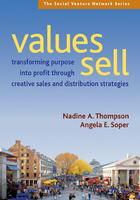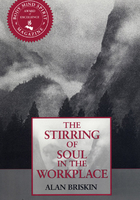“Morning in America”?
We hold these Truths to be self-evident, that all Men are created equal, that they are endowed by their Creator with certain unalienable Rights, that among these are Life, Liberty and the Pursuit of Happiness.—That to secure these Rights, Governments are instituted among Men, deriving their just Powers from the Consent of the Governed,—That whenever any Form of Government becomes destructive of these Ends, it is the Right of the People to alter or to abolish it, and to institute new Government, laying its Foundation on such Principles, and organizing its Powers in such Form, as to them shall seem most likely to effect their Safety and Happiness.
—DECLARATION OF INDEPENDENCE
image
We, The People of the United States, in Order to form a more perfect Union, establish Justice, insure domestic Tranquility, provide for the common defense, promote the general Welfare, and secure the Blessings of Liberty to ourselves and our Posterity, do ordain and establish this Constitution for the United States of America.
—PREAMBLE TO THE CONSTITUTION OF THE UNITED STATES
image
Lockheed Martin doesn't run the United States. But it does help run a breathtakingly big part of it.… “The fox isn't guarding the henhouse. He lives there.”
—“LOCKHEED AND THE FUTURE OF WAFARE,” New York Times
DECISIONS MADE by rich and powerful privatizing corporations increasingly affect virtually all aspects of our lives. The leaders of these corporations, many of whom live in the United States and enjoy its benefits, do not seem to care about what is happening to our country, to any country, because their loyalty is first and foremost to making profits for the multinational corporation they serve.
That's not what democracy is or should be about. We want rights that give us the ability to act, the dignity of individual people who matter, a kind of citizenship that lets us know that we can and do have an impact on important decisions that affect us and future generations.
Private Decision Makers, Public Goods
The wonderful woods behind your parents' house where you explored and played and hid, where you saw deer and raccoons and the occasional snake when you managed to sit quietly and watch—gone now, sold to developers who have become rich selling ugly, identical houses. You had no say: No one asks, no one cares, there seems to be nothing you can do.
You had a decent job that gave you enough to take care of your family, to send your children to school. Suddenly it is gone, and there you are with a pink slip, no paycheck, no insurance, little chance of a new job at age fifty-five, after thirty years with one corporation that just shut its doors and moved to where the labor is cheaper. You had no say: No one asks, no one cares, there seems to be nothing you can do.
A war is declared by the president of the United States. He gives reasons that keep changing as each previous one turns out not to be true. Men and women are sent off to fight, to kill, to die, even as it becomes evident that both war and postwar plans are too narrow, too unrealistic. Mistakes are made—and denied—so no one is held accountable. “Holding firm” rather than doing better is presented as a virtue.
Huge sums of our money—income from our tax dollars—are spent. Yet the men and women on the front lines of a war that did not end with the invasion, that did not end when the president declared it over, men and women who risk their lives in support of a decision they did not make, don't even have the equipment that might save their lives.
None of this money comes to your community either. You don't have enough firefighters or police anymore. They were in the National Guard and reserve units that were called up to fight and have not come back home. If they are not among those who have died or been seriously wounded, still they are not coming home. Their terms are being extended, extended, extended.
There is no public money to hire replacements for the good people who did the public work in your community. Families and friends and communities of our military volunteers hold local fundraising events to raise money to buy them the equipment they so desperately need. In San Jose, California, they plan an auction to raise money for body armor for their daughters and sons, sisters and brothers, wives and husbands, fathers and mothers, neighbors and friends.[1] Meanwhile, our tax dollars go to privatizing military corporations that are, as always, pursuing their profits. Some corporations begin to pull their employees out of the war zone because it is too dangerous. No one pulls our volunteer troops out. They stay there, underequipped, under stress, under fire.
Who is in power in our democracy? Who and what are they really serving?
So many times in history
We've watched them march away
Some cry out for victory
Some just stand and pray
For this father's daughter
For this mother's son
What will happen to the rest of us
When the war is done
Some are quick to honor
Some are quick to blame
Few can face the truth
That this all happens in our name
Before the first shot's fired
Our battle has begun
What will happen to the rest of us
When the war is done
Those who fight the battles
Are not those who make the laws
But bravery is still bravery
Even in an unjust cause
From the hand that signs the order
To the hand that fires the gun
What will happen to the rest of us
When the war is done
Some lie solitary
Beneath a hero's stone
Some return to loved ones
But will always be alone
Something sacred will be lost
Even when the war is won
What will happen to the rest of us
When the war is done
What will happen to the rest of us
When the war is over
What will happen to the rest of us
When the war is done[2]
This is a war fought by brave and loyal volunteers: the young man next door our sister coached in Little League, the young woman our brother taught in high school. But this invasion is also carried out by private contractors—that is to say, as it rarely ever is, by mercenaries, people paid to do the work of the U.S. military. Not for honor, not for country, not for freedom—for profit.
Privatizing the U.S. Military
Few people know that the U.S. military is now among the most privatized in the world. During the revolutionary war some of the sharpest anger and harshest criticism was reserved not for the soldiers of the British Crown but for the Hessians, the mercenaries, the soldiers-for-hire King George III paid to keep his colonists from breaking away from England. This time, the mercenaries are on the U.S. payroll, and this time they are working for supranational private military corporations that will send their employees anywhere, anytime, to fight on any side—ours, or theirs.[3]
There is even a new video game that invites people to have fun—and spend money—playing at being mercenaries, people who fight and kill and blow things up for pay, not for patriotism. It is not irrelevant, when killing for money becomes not only acceptable but glorified, that the torture exposed at the U.S.–run Abu Ghraib prison in Iraq also involved “contract workers”—mercenaries, privatized military personnel. In Afghanistan, a former Army Ranger working then as an independent contractor—a mercenary, a private soldier—beat to death a man named Abdul Wali who had surrendered for questioning.[4]
Privatizing the military means that corporations that supply the fighters are also hired to do intelligence work, training, and much of the work of protecting and reconstructing communities that the massive use of violence has just destroyed. In all these roles, their employees—contractors—are far better paid than our military volunteers, our National Guard members and reservists, our friends and children and partners and spouses who are even assigned to protect the mercenaries and other private contractors, a dangerous job not described in the exciting recruiting talks they were given.
Meanwhile, because of all this but also because of tax cuts that benefit mostly the rich, the federal government is in debt—to a staggering, record-breaking extent (as of February 2005, $427 trillion and growing). Because of reductions in federal aid to education, your child's school has its budget cut again, a setup for the privatizers. A private corporation, in the business to make a profit, is hired to come in and run the schools. Your sister, a dedicated third grade teacher for fifteen years, loses her job, as does everyone else working in the school, from the custodian to the principal. They are all encouraged to apply to get their old jobs back with the new corporation, and your sister, a fine teacher by everyone's account, is rehired.
But now her salary is lower, her benefits sliced. Her job security is gone, along with the union that once represented her. She is told what to do by someone hired by the corporation; it doesn't matter that she is one of those teachers who gets letters from former students telling her “Thank you; I will never forget.…” She lasts for a year, and the day after her students finish third grade, she turns in her letter of resignation. “If I can't teach with integrity,” she writes, “I can't teach.” A new teacher with no real experience is hired in her place, for even less money. More seasoned teachers leave: good for the bottom line.
The schools do not get better, and the states' budgets shrink still further because of cuts in federal aid to education that do not stop the federal debt from ballooning further out of control. Our shared public life and goods, the future that depends on them, the future we want for our children, are on a starvation diet, while corporate privatizers' profits get fatter. Further cuts are proposed in student financial aid. George W. Bush even proposes, in the opening days of his second term, to tax that financial aid. He spends trillions, he cuts the taxes of the richest people, and then he tries to get it back by nickel-and-diming our most crucial public goods, the ones for which nickels and dimes matter most.
Ensuring That Public Systems Fail
In those instances where our public systems are failing, they aren't failing all on their own. They are being starved and broken. The fat corporations circle around. They tell us how much more efficient and effective they are, that if they ran those systems, all would be well.
But when you call a corporation to complain that your new telephone doesn't work, it seems as if there are no people left in the world. Recorded directions take you through a maze that gets you nowhere. It hurts the bottom line to pay people to deal with people. The corporations have decided to automate, to do it electronically. Where there is still need for real live people to be sitting there, so that there's an unsynthesized human voice on the phone, they sometimes hire people in Third World countries, or in prison, to do it. No workers come cheaper than those who have no choices.
It's true. For a while, when you called Trans World Airlines to make a reservation, the person on the other end of the line was a prisoner behind bars at a California state prison.
“Good morning, TWA. May I help you?
“Yes, please. I'm thinking of flying to California for a vacation.”
“I'm sure you'll have a wonderful time. Would you like to purchase a ticket?”
“Oh, I'm glad you think California is a good choice. We've never been. Do you live there?”
“Yes, sir, you might say that.”
“Well, what do you think? Would our family enjoy a vacation there?”
“I can honestly say I haven't seriously planned on leaving in the ten years I've been here.”
“That sounds wonderful. Let me have four round-trip tickets.”
“Very good. Thank you so much. Now, please give me your name and credit card number, and I'll see what I can do for you.”
How do we have our say in the decisions that affect so very many of us when our government is influenced most by the big bucks that buy elections and influence policy? How do we protect our rights when everything we count on from government is privatized—outsourced, contracted out, leased, sold off to the highest (or the lowest, the only, or the most powerful) bidder? What happens to our freedom of conscience and of religion when we must go to religious establishments that get government funds to deliver our public services?
Most of all, what will we do when our government has been so weakened that it cannot work for us, and cannot stand up against the privatizing corporations that now take the whole world as their domain? What do we do when government itself is privatized?
Whatever happened to the idea that We the People are the public, to the faith that government was established to serve the public good, not to help increase the profits of privatizing corporations and their control over our lives?
注释:
[1]Alicia Guard and Peter Fimrite, “Army Reserve Irked by Soldiers' Fundraiser,” San Francisco Chronicle, Dec. 22, 2004; see
[2]Si Kahn, “When the War Is Done,” We're Still Here (Hoofdorp, The Netherlands: Strictly Country Records, 2004).
[3]P. W. Singer, Corporate Warriors: The Rise of the Privatized Military Industry (Ithaca, N.Y.: Cornell University Press, 2003).
[4]Scott Ainslee, “Letter to the Editor,” The Reformer (response to Associated Press story “CIA Contractor Charged in Death of Afghan Detainee”), June 18, 2004.














